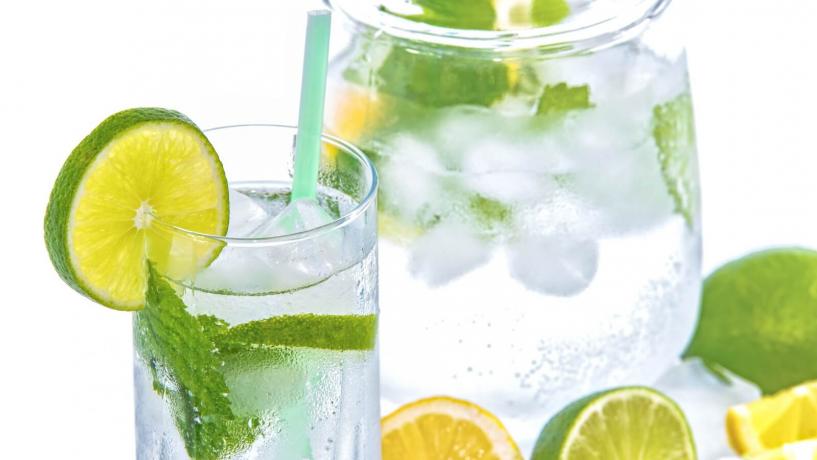
Planning on having a nice, cool soft drink to ward off the summer heat? Or a cocktail or two over the weekend? Many people don't realise that there may be a food safety hazard lurking in their favourite drink. Here are some of the dangers to look out for.
Ice
If ice is made from contaminated water, it can release dangerous pathogens into your drink as it begins to melt. What's more, ice can pick up pathogens from cutting boards, hands or ice scoops. In fact, a study in the US found that between 67% and 83% of the ice cubes that were sampled in restaurants carried bacteria or fungi on them.
Many people know when travelling overseas to developing countries that they should avoid ice in drinks, but that doesn't mean you can ignore the hazard in Australia and other western countries. One of the worst cases on record was at a football game in the US which caused 5000 people to contract norovirus linked back to ice served at the game.
Lemon & Lime
Despite the acidity of lemons and limes (bacteria grow best in neutral acidity environments), bacteria can easily be transferred from one place to another on slices of these fruits.
In an experiment conducted by Canadian researchers it was found that when bartenders' hands were contaminated with e.Coli, the pathogen was transferred to wet lemons 100% of the time, and to dry lemons 30% of the time.
Raw Eggs
Raw eggs have caused some of the biggest food-borne illness outbreaks in Australia, one of the worst being an incident in 2013 where a person died and 200 fell ill with salmonella poisoning after eating raw egg mayonnaise from a Brisbane caterer.
Yet raw eggs are still often used in drinks such as sours and smoothies. The only way to ensure that eggs are safe to eat is to cook them through (yolks should be hard) which means that drinks that contain raw eggs are a very high-risk food.
Fruit
Who doesn't love a fresh fruit smoothie or a cocktail made out of fresh fruit? However, fruit in drinks can also cause food poisoning. Bacteria can easily be transferred from knives and cutting boards onto the fruit. Unwashed fruit can harbour bacteria. And cutting into fruit that has a skin, such as rockmelons, can transfer bacteria from the outside to the inside of the fruit.
Be especially careful with fruits that are low acidity such as melons and berries as these provide a suitable environment for bacteria to grow.
Milk
A glass of pasteurised milk straight out of the fridge is unlikely to do much harm (provided it's within the expiry date) but cocktails made with a dash of milk need to be treated with caution. Milk that's been out of the refrigerator for more than 2 hours in total should be discarded as bacteria could have reached dangerous levels.
Look out for bartenders who leave milk on the side of the bar and don't refrigerate it immediately as it could easily reach the 2-hour limit within the time it takes to make a handful of cocktails.
Does Alcohol Kill Pathogens?
Many people believe that alcohol in drinks kills off pathogens but that's been found to be incorrect. In fact, one experiment found that pathogens in frozen ice weren't killed off even when dissolved in 80-86 proof mixtures of Scotch and soda or tequila.
As with all food safety hazards, it's best to apply common sense when ordering or preparing drinks containing the above ingredients. With a little mindfulness and some good sanitation, the threat can be easily alleviated. And always remember the golden rule of food safety - when in doubt, throw it out!





